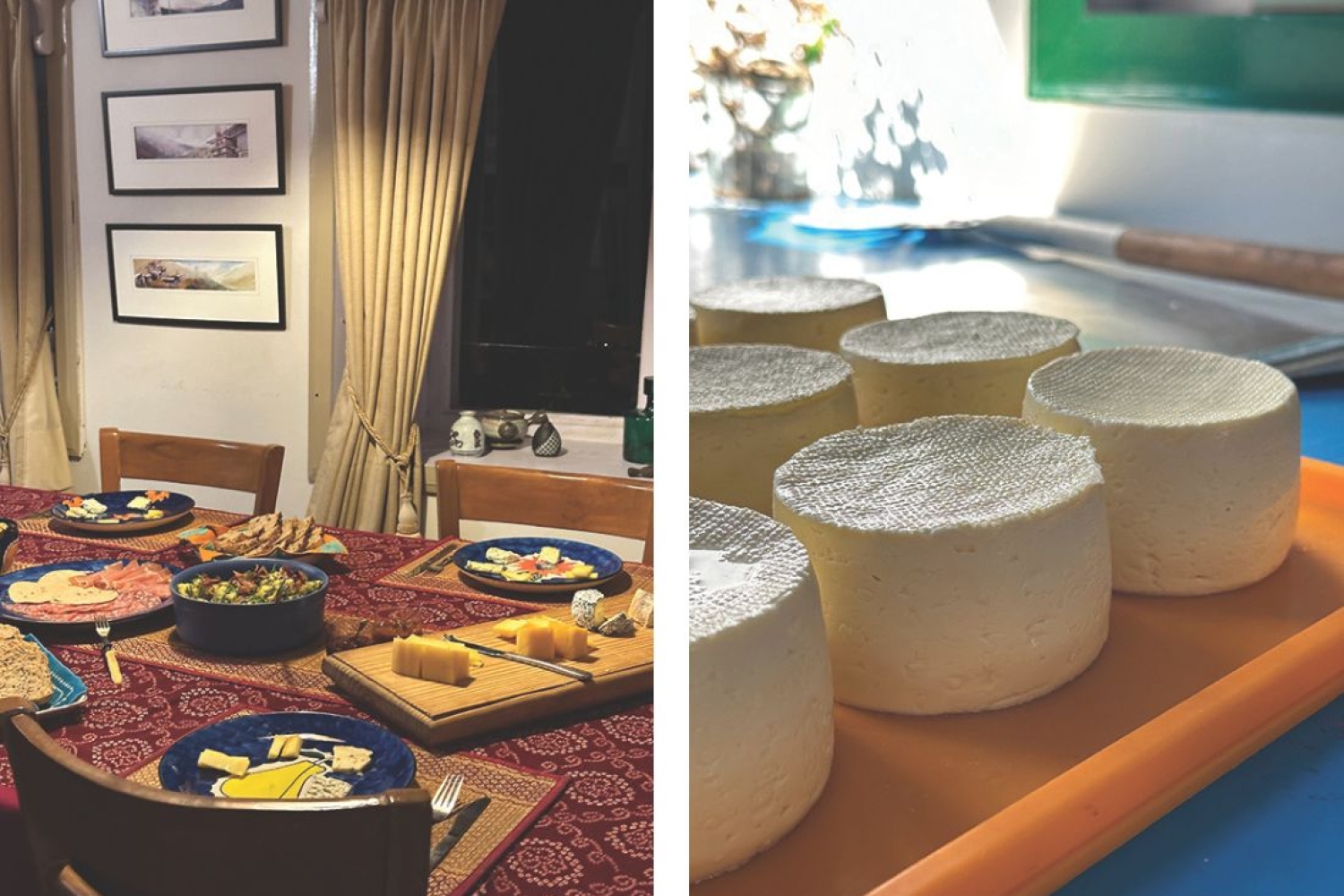

Born out of pastoral patterns, the relocation of human and herd, cheese is, in actuality, a bi-product of an unknown error.
From a mistake to a daily product served at home, the practice of cheesemaking has evolved from its accidental origin to an almost staple or luxuriant indulgence where a simple grilled cheese and a gourmet cheese board hold equal ground. In India, the evolution goes from import to heirloom; to our homegrown brands going global with Indian cheesemakers showing up with international accreditations. Of course, some emulating the delicate flavours of the Western varieties but many of them introducing cheeses to our boards that, while new to us, are inherent to our country. Our own heirlooms, from the milk capital of the world.
As they carry the Desi cheese movement forward with similar sourcing practices and commendable educational impact initiatives, there’s one cheese maker’s story that is making a whey of its own. Introducing Francois Laederich, the Parisian cheesemaker, who is one part of the husband and wife duo, behind Amiksa Cheese.
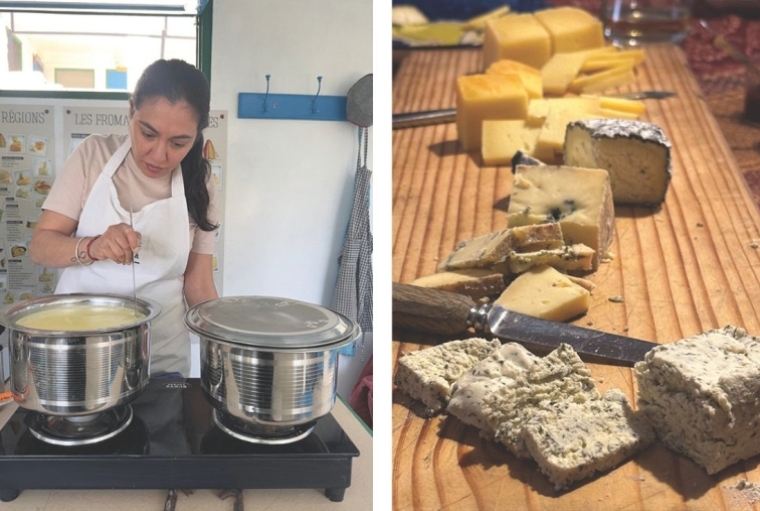
While imported himself, the cheesemaker presents a heterogeneous approach to honouring the practice in India, where curds as a business are not meant to be dominated by volume but rather return to its natural, human connections.
It starts with his own cheese making life. An immigrant to India as a young boy, Franccois and his family came to the subcontinent looking for a new way of life. Fast forward to his adulthood, Franccois found himself with a successful hospitality career in Pondicherry, along with a wife, Debarati and two young boys of his own and virtually no time to spend with them.
Famished for change, Francois and family made their way to the hills. You could say much as the shepherds once did with their flock. Romanticism aside, once they zeroed in on the Shimla district for their new home, the realisation of building a project rather than relying on the prospect of employment, eventually led them to a life making cheese.
For the French, cheese making started in the mountains. Where the terrior or the taste of the land, is as abundant as the milk produced in Mashobra. A coincidence, that Francois won’t readily claim, is that he had been considering a bakery. Instead, it was the green pastures, dotted with daisies, home to the hundreds of Jersey Cows that caught his eye. French technique with some of the freshest most flavourful milk the subcontinent has to offer. Of course, they’d make cheese in the mountains.
Again like the shepherds, his story was a case where the need for relocation led to a livelihood built by the result of one’s resources. Determined to do things with practice and precision, Francois returned to France for an immersion into caseiculture, the art of making cheese. Mastering the techniques and learning the classic recipes were important but for Francois, the focus was the milk. The properties that made it ideal for cheesemaking and the steps he would have to follow to achieve optimum curd with the climate and ingredients available to him back home in India.
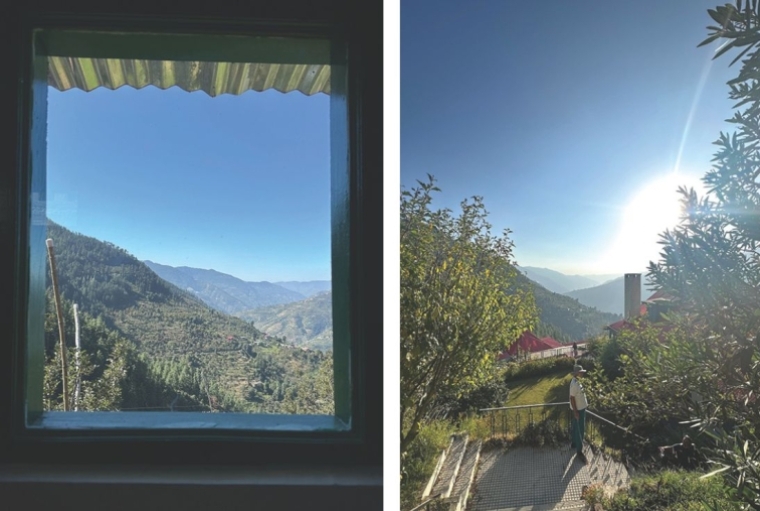
From a school in Aurillac, located in the Auvergne-Rhone-Alpes region of France, he ventured back to the high altitudes of India to begin setting up Amiksa, which is Sanskrit for cheese curds. While ideally suited for cheese production in India, where the climate in theory stays true to curdle-worthy production, Francois found his neighbours taken aback by his original orders for milk.
What would one family do with so much milk? The answer is to feed many more families with the same milk.
Certainly not claiming a solution to food access, rather simply returning to the accidental invention of cheese, where a product, bred in abundance, could be fermented for future use. At the time, his neighbours - the dairy farmers - were still like many Indians, eating cheese processed by the giants at Amul. With education as their instrument, Francois and Debarati foraged an understanding of their plans, eventually leading to a partnership with the village. Today, a measure of one hundred and twenty litres of milk a day are delivered to the Amiksa atelier.
As the business of making and selling cheese continues to grow from retailers in New Delhi to Chandigarh, Francois solidifies new ways of spreading his curds. Like his collaboration with celebrated Chef Prateek Sadhu of Naar, with an entire course of this coveted fine dining experience centred around an Amiksa cheese cart, the cheese maker successfully completes the benchmark from pastoral product to premium dining.
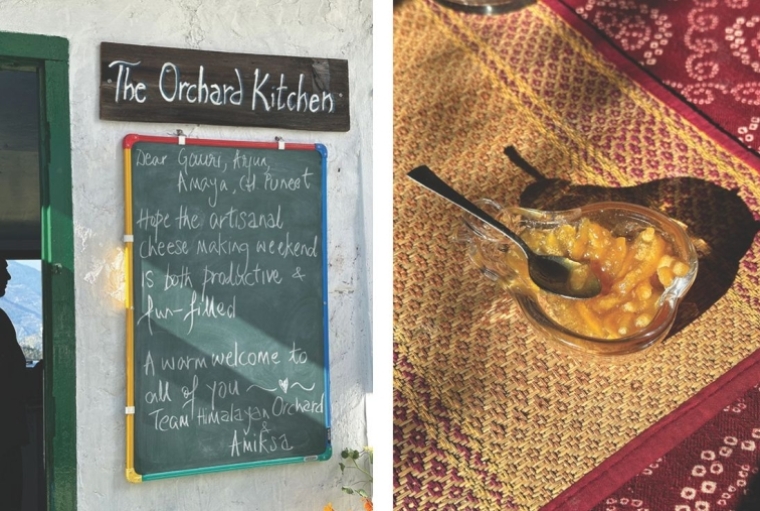
However just as he won’t allude to the amorous moment that led to Amiksa, he also won’t describe building a business simply for scale, or even recognition for that matter. With his production levels at capacity, Francois denies numerous offers to expand. Claiming a different calling from curd, ‘there is always this fascination with fermented products, especially cheesemaking. There’s a big fascination in India. I’m trying to break the fascination’, Francois describes while setting up his monthly cheesemaking workshop.
Set in the picturesque, provisional kitchen at the Himalayan Orchard farmstay in Rukhla, the three-night course is designed to introduce participants to the art of making cheese at home. Over the course of three-night, two-day program, Francois takes participants through a practical lesson, where two entry level cheeses are produced, along with a fulltheoretical understanding of the product.
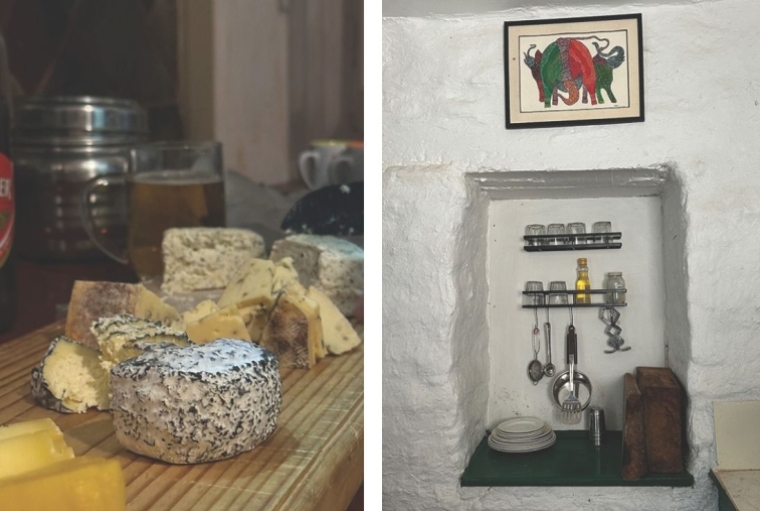
While the course is as affordable as the overnight booking at the homestay, the true investment is taking the time. A three hour drive north of Shimla, the orchard is as curious as the cheese course itself, offering a world of its own way up in the hills. Just as it takes time to make it there for class, Francois’ teaching style demands a similar level of commitment.
Favouring fluid instruction where no outlines are given, Francois begins with a discussion about milk. ‘When you have to write your own notes, you have to be more involved. I feel it’s going deeper than a page of paper that’s written for you.’ He explains that while Amiksa uses the dairy from the acclaimed Jersey cows in his now hometown, he offers participants a myriad of properties to look for when sourcing milk, knowing that one’s locality and freshness of the milk of choice matters when making cheese.
‘I don’t want to just throw a cheese recipe out there. I want people to understand the process of lactic fermentation and how all of this happens. I feel if you don’t understand the process it doesn’t really make sense.’
His participants range from housewives to retired army generals to food hobbyists and sometimes includes others who plan or already do include cheesemaking in their professional portfolio. Dismissing the notion of holding on to trade secrets, Francois resounds, ‘There is always this drama about not sharing your knowledge. We all learn from someone’.
While using his French cheese making training to make cheese from Himalayan dairy, Francois delivers a set-up for cheesemaking that’s more Desi than you would expect. Favouring the jugaad way of making it work, he encourages his students to opt for everyday items to create a cheese practice. PBC pipes turned into cheese molds, plastic window screens instead of fancy mats and even a second hand way to create a cheese cave, if you’re willing to source the materials.
Not bound by a syllabus, his students are encouraged to ask for other recipes and methods of producing more complex cheeses. For those who learn stracchino, a soft Italian cheese made with cow’s milk, Francois will instruct them on the similarities to mozzarella, a far more complex set of curds.
When teaching the steps of making fromage blanc, Francois will again include variations. As he patiently shows his students how to cut the delicate curds, he shares the recipe for his exclusive Noir, a lactic cow’s milk wheel that’s devilishly coated in active charcoal. Inspired by fromages de chevre, this special recipe is exclusively served at Naar, except on the rare occasion he decides to share it with his exclusive set of retailers. Sharing the recipe and where to get all the ingredients to make it, attendees arrive at yet another return on investment (ROI).
The rewards keep coming with the conclusion of the weekend centred around a tasting of the very cheese produced by the participants. A handmade sourdough pie in the hills is one thing, topped with your own curds, well, that’s a profit of another kind.
It doesn’t stop there. The ROI continues with an open door policy long after the class is over; participants are signed into a group chat with the others from their class and can continue to seek advice from Franc?ois as they begin their own at home cheese making journeys. Confident in his instruction but aware of the commitment, ‘when you first find yourself alone with a batch of milk and you have to do it by yourself, it’s a totally different story’.
Eager to continue his sharing of knowledge, Francois and his partners at the Himalayan Orchard are exploring advanced courses for those who’ve graduated from the first. From the entry-level soft cheeses to the process of introducing molds and more aging, Francois believes in the cyclical reward of a cheese maker’s life.
While the courses introduce the art of making cheese at home to willing participants, Francois continues to answer his calling in more ways than one. Once again, following the serenity of the hills and the generations of families who did it long before him, his interests now come to the original ancestry of cheese. Think of the story that begins with the pastoral promises that lead to his hubris for human connections, you might just be able to tell which whey he’ll go next.
Words & Photography Gauri Sarin
Date 15.02.2025